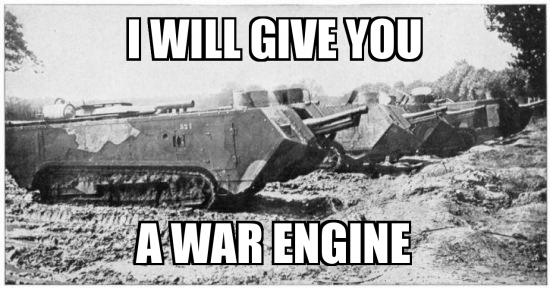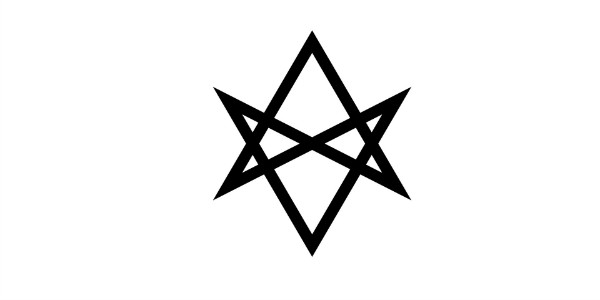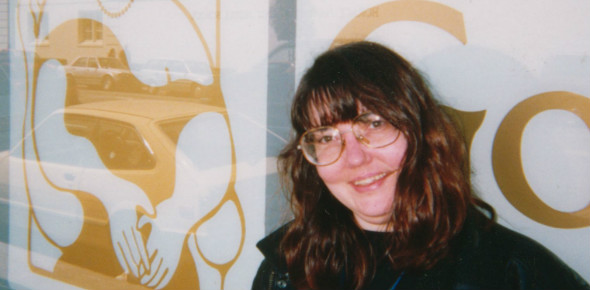Ra-Hoor-Khuit speaks: “I will give you a war-engine.” It is the high holy days for Thelemites. Today we commemorate the reception of Chapter 3 of the Book of the Law by Aleister Crowley and Rose Kelly Crowley on April 10 1904.
Where Nuit sings of love and Hadit whispers devotion, Ra Hoor Khuit thunders war. Crowley interpreted this literally. Horus, the crowned and conquering child, would usher in a new era through a bloody sacrifice, a Great War that would bathe the world in blood. In this way Thelema would be brought to the world as a political force. An entire country would adopt it, more would follow.
When the First World War ripped Europe apart Crowley interpreted this as a fulfillment of the prophecy. He saw Ra Hoor Khuit’s promised war engine in the development of the tank. After the Second World War he upgraded the war engine: now it was the nuclear bomb. Crowley’s successors interpreted the Book of the Law to predict a nuclear war that would destroy much of the human race.
Is the law of Thelema a benefit to humanity if humanity must die to receive it?
Ra Hoor Khuit says “Success is thy proof.” If real world political influence is our proof we have already failed. How many people in a million have even heard of the Book of the Law? Clearly we need another measure of success.
I don’t carry Crowley’s ambition for an entire Thelemic country forward in time. This outcome is both unlikely and undesirable. The health of any ecosystem depends on its diversity. That’s not only true biologically, it’s true for political and cultural and religious systems too.
The long term viability of the Thelemic experiment depends on our ability to demonstrate the value of Thelema to people who don’t even know who we are.
I can’t help but think about the second century Christians. In Zealot Reza Aslan makes the case that Jesus Christ intended to establish a literal kingdom on earth. When he died and this kingdom failed to materialize, what happened next? As it turns out he was not the first messiah to lead a rebellion and he was not the last, he was one among many. So why do we remember this particular man? What made his story different is that his followers translated his story from Hebrew to Greek and presented his message not as a political but as a spiritual one.
The history of religions teaches an invaluable lesson: the literal interpretation of holy scriptures is the path to violence. When we externalize our demons we find them and kill them out there in the world. The demon is the enemy who wants to take our livelihood and our lives, whose beliefs will surely lead to destruction, whose very existence threatens ours. We must defend ourselves! So we arrest, imprison, beat, hang, shoot, and bomb those enemies. In all this we lose track of the reality that those enemies are someone’s lovers; they are sons and brothers, mothers and daughters.
One of the great spiritual lessons is that the demons are not outside of us. Understanding that they live within us is the path to peace. The urge to kill, to imprison, to wound, to control belief, those are the true sins. When we overcome these in ourselves we benefit not only ourselves but the world. Establishing the law of Thelema doesn’t mean creating a physical kingdom with a human monarch. Establishing the law of Thelema means living our lives freely and demonstrating to others the joy and strength of that life.
The Book of the Law was received by a prophet who knew himself as the reincarnation of Ankh-af-na-khonsu, a New Kingdom priest of the war god Mentu. But Horus is not Mentu, he is not a destructive god. He destroys his father’s killer but then settles in to rule a peaceful kingdom. Remember also that this is not an historical event but a mythical one – the power of justice acts to restore balance and create and maintain harmony.
My experience of Horus is not punitive but protective. At my confirmation into Ecclesia Gnostica Catholica I was given a blow (a cheek slap) and told “Ra-Hoor-Khu is with thee.” At that moment I visualized the statue of Horus as hawk enfolding the royal child in his wings. I felt his protection fall over me like an armor. Whenever I am in the world doing justice work I experience his protection around me. More, I embody him. I interpret the law of Thelema in the broadest possible sense – I work to bring freedom to every person in the world, however that person interprets freedom.
There is another way to read the third chapter. We don’t fight this war with tanks or bombs. The island we are choosing is the one in our hearts. This is where the Scarlet Woman is raised to the heights. This is where we pass through the ordeals. The cowards we despise, the traitors we destroy, the brothers with whom we fight, are all ourselves. It is in our own souls that we do reverence to the Hawk Headed God. This is our success.
“Fear not at all; fear neither men nor Fates, nor gods, nor anything. Money fear not, nor laughter of the folk folly, nor any other power in heaven or upon the earth or under the earth. Nu is your refuge as Hadit your light; and I am the strength, force, vigour, of your arms.” May Ra Hoor Khu be with you.




